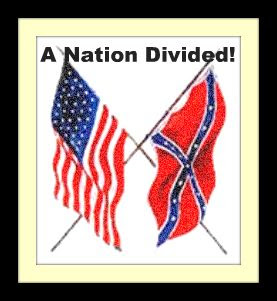Welcome to my 2nd Battle Breakdown: The First Battle of Bulls Run or other
wise known as Battle of First Manassas. The first battle of bulls runs was the first in a series of two battles. Bulls run took place during the civil war and was the first major battle. Especially for the Union since it was a political battle too. I will explain more on this so called "Political Battle". It was the Unions' first attempt to invade the confederacy.
This was the first battle for the confedrates to prove that were a worthy nation to world. This battle was high stakes for both sides. A Union defeat would mean that the Union isn't as strong as orginally thought. A confedrate defeat would mean a short and quick defeat with the fall of Richmond.
The battle took place in July 21, 1861. It was at Manassas Junction in Viriginia. Here is Manassas Junction on Google Maps if you don't know where that is. The Men who fought in this battle were led by on Union side Irvin McDowell and on the confederate side, the Fort Sumter winning general Pierre G. T. Beauregard. Irvin McDowell should be some what familiar if you are familiar with the civil war. If you need to refresh your memory or learn more then here is a biograhpy on him. A interesting thing happened before the battle in which the Confederacy proceeded to move their captial to Richmond, Virginia only a 108 miles away from the current capital and then Union capital Washington Dc. Which the Union found insulting.
The Confederacy looks like its mocking the Union. The thing I don't understand why its so close to the Union. Did they think about if there was going to be war, having the capital 108 miles from the enemy is the most strategic place. But looking at it from their point of view they thought it would be a quick war.
This how the battle in terms of troops lined up. The union had McDowell with is 30,000 troops along with General Robert Patterson with his 18,000 and lastly Union General Benjamin Butler had 10,000 men. Most of the Union troops were along the Potomac river, Harper's Ferry, Fort Monroe respectively. On the Confederate side, Beauregard had 20,000 along with Joseph E. Johnston who had 12,000 troops. Most of the Confederate troops were behind a creek called Bull run and near Harper's Ferry. If you need Geographic help here's a link to Google Maps.
The battle started on July 21st, 1861. The confederate strategy was based the great Napoleon's strategy at Austerlitz. The plan failed due to the inexperience of troops and a greater force to the Union's advantage. This tends to be a trend throughout the war, the Union consistently out-numbers the confederate forces. At one point during the battle at place called Henry House Hill, where the Union troops advanced on this plateau and defeated some confederate units. This plateau was where General Thomas Jackson got his nickname "Stonewall Jackson".
The real turning point in this battle was probably the most embarrassing thing to happen to the Union for the whole war. More troops from Harpers Ferry arrived to help the steadily losing Confederate lines. This caused the Union main line to collapse and since the troops were inexperienced they retreated. Eventually the whole Union force had to pull pack. This giving the Confederates a victory. But Victory comes with a price; Confederate losses 1,982 and Union losses 2,896. This implied that a so-called short war was not going to be possible.
This is only round one of Bulls run at Manassas. This really was tone setter for how the war would go. Everyone thought it would take one battle and be decided. But on the account of hard-fighting and even deeper beliefs the confederacy manages to pull out a victory. The impact on Lincoln was even greater than just losing a battle. He had politics to deal with also making it a hard job for anyone.
If you want more information, the book I used is list on the side with author(Everything Civil War book). You can also use an encyclopedia or Google.
My next post: The Second Battle of Bulls run at Manassas Junction.

